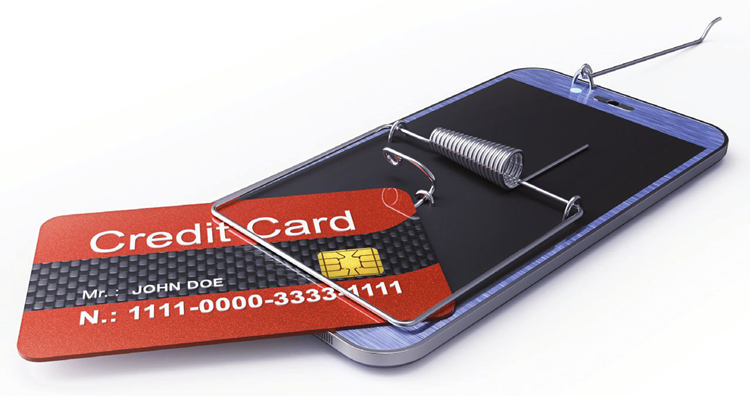
Can a company really avoid fraudulent transactions? The short answer is probably not, but the reality is you can absolutely minimize your exposure if you just think about the transaction in question.
Over the last 23+ years, I have had the opportunity to work with hundreds of companies, manage millions of transactions, field a multitude of questions and conduct numerous presentations about the ever-changing credit card industry.

If your company is going to facilitate payments over the phone from companies/people with which you are not familiar and/or enter into the e-commerce space, then you should anticipate a certain percentage of losses if you want to be realistic about the potential upside. Although fraudulent transactions can happen at the point of sale, it is extremely rare that the wholesaler/ distributor community will be impacted by those types of transactions. Based on this, we will focus on two types of transactions (telephone and e-commerce).
Many of you allow your customers to pay their open account balances using a credit card, which is considered a card not present (CNP) transaction; there is no risk associated with those transactions. The riskenters the equation when a new customer wants to purchase something over the phone.
Let’s face it, none of us want to walk away from a new/good sale, but don’t forget to complete your due diligence. There is no full-proof way to avoid a fraudulent transaction, but there are some simple steps you must complete to give yourself the best chance to facilitate profitable transactions.
The first question to ask is, “How did you hear about us?” Did you receive a specific answer that makes sense or something vague that makes you question the opportunity?
We also recommend you collect the following information:
- Company name (legal and DBA)
- Years in business
- Address
- Phone number
- Email address
- Website URL
- Do they have a contractor’s license and/or bond in place?
Once you have collected this data, it’s time to perform some internet searches. Google and Bing seem to be the best search engines, as well as a site called blackbookonline.info.
While completing your due diligence, keep customers engaged by sending them a credit card authorization form to complete. In addition to having them complete this form, you will want to request a copy of their credit card and driver’s license (front and back).
Once you receive these items, you will want to compare the signatures on them. Do the credit card and/or driver’s license look too good? A lot of the fraud we have seen over the last few years arises out of situations in which these items look perfect. To illustrate this point, take a picture of your credit card and driver’s license and email them to yourself. Observe the quality or lack thereof and don’t get fooled by “perfection.”
In addition, these are some tell-tale signs to look for:
- Trying to rush you
- Not attempting to negotiate price
- Declined credit card but eventually has one that gets approved
- Generic email address at Gmail, yahoo, AOL, etc.
- Unusual delivery method (i.e. sending a courier to pick up product, shipping out of area, etc.)
- Unusual order (quantity and/or product)
At the end of the day, we can complete as much due diligence as we want, but that won’t ensure that we don’t experience a fraudulent transaction from time to time. We encourage everyone to collaborate with your peers to determine if you should move forward on a particular transaction.

Lastly, and maybe the most important key to avoiding fraudulent transactions, is your gut feeling. If something doesn’t feel right, then there is most likely a good reason why.
The e-commerce side of business is a little trickier because there is less human interaction. The good news is that there are more controls you can implement in this environment to protect your profits.
Although your industry is considered low risk, it doesn’t mean you’re immune. Some fraudsters like to target lower-risk industries, figuring their guard is down and they’ll be easier to scam. One of the biggest ways e-commerce fraud hits merchants hard is the chargeback. There are valid reasons for some chargebacks. In other cases, the chargeback is entirely fraudulent.

All e-commerce merchants should consider the delicate balance between using safeguards to prevent fraud, and not creating too many hoops for customers to jump through. Using a combination of the following methods and techniques can be the best defense against fraud. Do not rely too much on any one technique or tool to prevent and detect fraud.
- Authorization approval does not mean that the merchant is guaranteed payment. Approval only indicates that at the time the approval was issued, the card hadn’t been reported stolen or lost.
- Address Verification System (AVS) checks if the cardholder’s street address and zip code match the information at the card-issuing bank. There are reasons, other than fraud, that AVS may fail. If AVS fails for any reason, the merchant may contact the customer for additional information.
- Payer Authentication Programs (verified by Visa and Mastercard’s Secure Code) use personal passwords to ensure the identity of the online card user. This adds an extra step to the ordering process, and potentially some additional fees.
- The Bank Identification Number (BIN) is the first six digits of the credit card number. You can use the BIN to determine if the credit card holder and its issuing bank are located in the same country.
- Different billing and shipping addresses require telephone numbers for both addresses. Use Google/Bing to search for the street address and zip code. You could require advance payment with a cashier’s check or money order when different shipping and billing addresses are used.
Technology is your friend when entering the e-commerce space. Find out what technology is available within your current shopping cart and leverage every aspect of it. Finally, if you find yourself experiencing excessive fraud, there are companies that essentially “guarantee” your transactions against fraud. Two of the most popular companies in this space are Signified and Riskified.